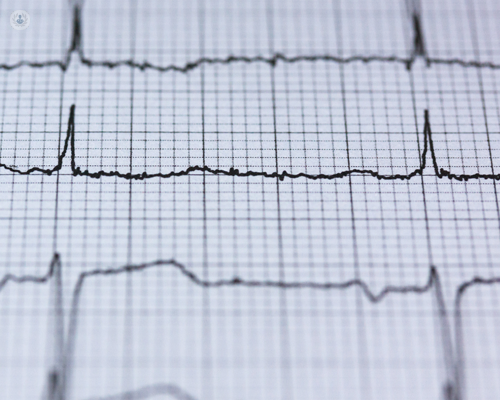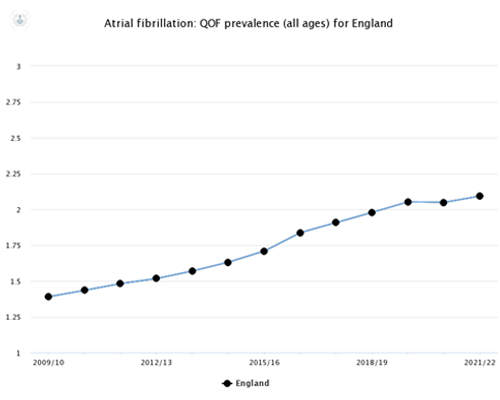Atrial fibrillation and the warning signs: What you need to know
Autore:Atrial fibrillation (AF) is a common heart condition that affects many individuals. Dr Aruna Arujuna provides essential information on atrial fibrillation and its warning signs in this article.

Have you been diagnosed with atrial fibrillation?
The first thing you must know is that you are not alone. Atrial fibrillation is the most common heart rhythm disorder in the world with over two million people affected in the United Kingdom and 60 million affected worldwide.
In this synopsis, we will discuss what atrial fibrillation is, what symptoms it causes, what complications it can lead to, who is at risk and how it can be treated. It is important to acknowledge that when managed correctly, people with atrial fibrillation can continue to lead a long active life.

So, what is atrial fibrillation (AF)?
AF is caused by chaotic electrical signals which makes the upper chambers of the heart quiver instead of fully contracting.
This can cause the heart to beat up to four times faster than normal which can lead to the awareness of fluttering in the chest or palpitations.
Symptoms:
AF symptoms include feeling tired or having little or no energy, a fast or irregular pulse or heart palpitations. Other symptoms include shortness of breath, chest discomfort and a pressure-like sensation in the chest. Some people do experience dizziness or feeling lightheaded and there are people who do show no symptoms.
Complications of atrial fibrillation:
The inadequate blood movement within the left atrium can cause blood to pool within the chamber which promotes clot formation. If the clot dislodges and travels to the brain, it can cause an embolic stroke.
AF can also lead to heart failure, or fluid build-up by weakening the heart muscle.
If AF is not treated, the condition can worsen and may result in more frequent and longer episodes. When this occurs, it becomes increasingly harder to treat AF.
Risk factors:
Having medical problems such as high blood pressure, sleep apnoea, diabetes or underlying ischaemia can put someone at a greater risk for developing AF. However, even people committed to a healthy lifestyle with no other medical problems can develop AF symptoms. Obesity, smoking, lack of physical activity, thyroid and metabolic diseases, inflammatory conditions, disrupted sleep circadian rhythm and both alcohol and substance use can also trigger AF.
Diagnosis:
AF is diagnosed by taking an electrical recording of the heart with an ECG.
Once the health care provider diagnoses AF, then the treatment can commence.
Treatment:
AF management can be summarised into 4 pillars.
- Pillar 1 includes blood thinners known as anti-coagulants to prevent blood clot from forming. This reduces the risks of a stroke and is part of the AF stroke prevention strategy.
- Pillar 2 includes initiating medications called anti-arrhythmics to help maintain a normal rhythm.
- Pillar 3 is rhythm control. Performing specialised procedures such as cardio-version which is a controlled shock to the chest and heart can restore normal rhythm. However, the substrate causing AF remains. Another procedure is catheter ablation which uses a catheter or flexible electrode to deliver energy to substrate areas within the heart that causes AF. Cauterising these areas reduces the AF substrate within the heart.
- Pillar 4 is risk factor modification and lifestyle changes to improve the overall AF outcomes. Lifestyle changes should be considered as part of AF management. Obesity and being overweight is a considerable risk factor for AF. Promoting weight loss through healthy eating and aerobic exercises helps people to lose weight and this gradually improves overall health and wellbeing.
There are many tools and treatments to help AF patients have a high quality of life and good outcome. Get back what AF has stolen!
If you’re concerned about having any of the symptoms of atrial fibrillation, arrange a consultation with Dr Arujuna via his Top Doctors profile.


